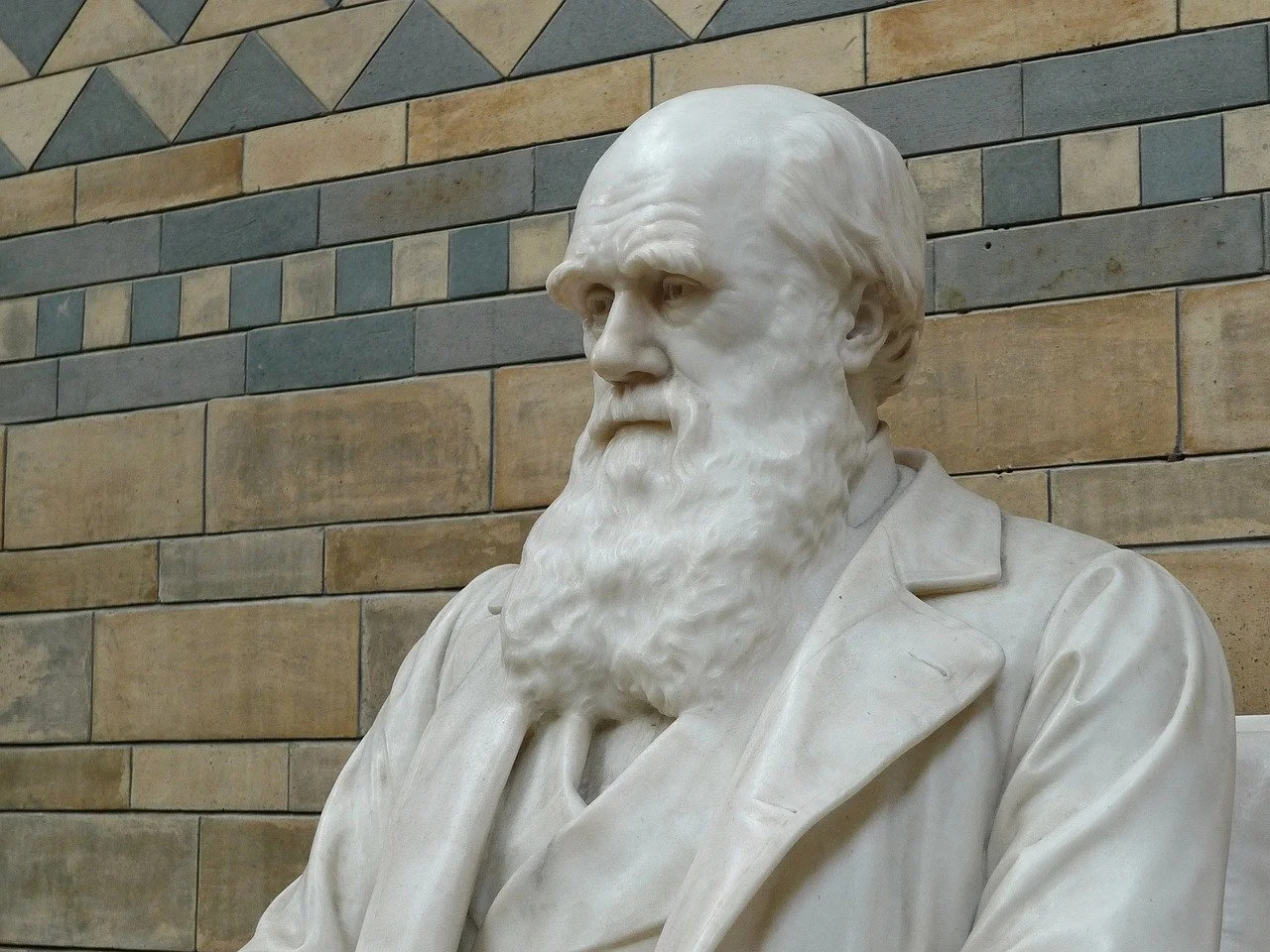Humble Thanksgiving
It seems, at this time of year it is difficult for me to post things on my Faith page. I looked back over the last almost 10 years and noticed a distinct decrease from three or four posts for the month of November to just one. There are numerous factors for this struggle to get pen to page, or fingers to keyboard including the increased busyness of the season as we move from Halloween, to Thanksgiving to Christmas. In addition, since 2021, I always seem to get sick or have a flare up of whatever this is that I regularly deal with, and it leaves me feeling fatigued and completely unmotivated; not good things to have when you are trying to get ready for the upcoming holidays.
Image by StartupStockPhotos from Pixabay
I decided this morning, after I ate my oatmeal, I would listen to Christmas music with a cup of tea and try to make something come out of my ever shrinking brain. Once again, due to the time of year, my mind comes to rest on thankfulness.
I read a short article on Facebook this morning regarding Thanksgiving. It was a good reminder to look at the true foundation of thanksgiving; not the holiday, but the attitude. Probably one of the earliest examples of giving thanks is found in Genesis 8.
“20 Then Noah built an altar to the Lord, and took of every clean animal and of every clean bird and offered burnt offerings on the altar.
21 The Lord smelled the soothing aroma; and the Lord said to Himself, “I will never again curse the ground on account of man, for the intent of man’s heart is evil from his youth; and I will never again destroy every living thing, as I have done.”
Image by Jeff Jacobs from Pixabay
While the passage itself does not use the words thanks, or thanksgiving, we are able to draw the conclusion that the altar Noah built to the Lord and sacrificed on was one of worship and thanks for all the Lord had brought them through over the last number of decades; even more specifically over the last year while they were confined to a large wooden craft bobbing around on a seascape they had never seen or experienced before.
This sacrifice to the Lord was a soothing aroma. That says something about the attitude of gratitude when it comes to us on a day to day basis. Is what comes out of my mouth, my mind, my heart, an aroma to God that soothes Him? I love this quote, and I think it goes well with having a mindset of thanksgiving.
“This is the true joy of life: the being used up for a purpose recognized by yourself as a mighty one; being a force of nature instead of a feverish, selfish little clot of ailments and grievances, complaining that the world will not devote itself to making you happy.”
We certainly don’t all agree on what that mighty purpose is, but no matter what you are passionate about, you must admit being thankful makes us more likely a force of nature that is used for good, rather than one that is destructive and primarily self-serving. The Bible speaks to this as well.
“18 For the wrath of God is revealed from heaven against all ungodliness and unrighteousness of men who suppress the truth in unrighteousness,
19 because that which is known about God is evident within them; for God made it evident to them.
20 For since the creation of the world His invisible attributes, His eternal power and divine nature, have been clearly seen, being understood through what has been made, so that they are without excuse.
21 For even though they knew God, they did not honor Him as God or give thanks, but they became futile in their speculations, and their foolish heart was darkened.
22 Professing to be wise, they became fools,
23 and exchanged the glory of the incorruptible God for an image in the form of corruptible man and of birds and four-footed animals and crawling creatures.
24 Therefore God gave them over in the lusts of their hearts to impurity, so that their bodies would be dishonored among them.
25 For they exchanged the truth of God for a lie, and worshiped and served the creature rather than the Creator, who is blessed forever. Amen.”
This passage is clear on what will happen to those who do not honor God and are not thankful. Being thankful is not just a polite social more that we teach our children. Giving thanks is an important part of keeping the light within us. I believe this applies to all people, not just believers.
Image by Marlon Sommer from Pixabay
Verse 19 tells us “that which is known about God is evident within them; for God made it evident to them.” We are all made in God’s image. As Genesis says, “Then God said, ‘Let Us make man in our image, according to Our likeness…’” (Genesis 1:26)
When we are young, we don’t naturally lean towards thankfulness. It has to be shown to us, and taught. However, a child who is secure and loved will more easily exhibit a thankful attitude. Jesus used a child to teach a very important lesson.
“1 At that time the disciples came to Jesus, saying, “Who is the greatest in the kingdom of heaven?”
2 And calling to him a child, he put him in the midst of them
3 and said, “Truly, I say to you, unless you turn and become like children, you will never enter the kingdom of heaven.
4 Whoever humbles himself like this child is the greatest in the kingdom of heaven.
5 “Whoever receives one such child in my name receives me,
6 but whoever causes one of these little ones who believe in me to sin, it would be better for him to have a great millstone fastened around his neck and to be drowned in the depth of the sea.”
If we do not become like little children we cannot enter the kingdom of heaven. Why is this so, and what does it have to do with being thankful? Don’t worry, I am getting there.
We cannot enter the kingdom of heaven without humility. A child starts life from a place of humility. They don’t know pride, until it is hatched from them as part of their sin nature. What does pride say?
“I can do it myself!”
“Mine!”
“No!”
We cannot enter the kingdom of heaven until we throw away everything we ever thought we knew or believed and, like a child, accept what Christ has done for us knowing we are completely and utterly dependent on Him.
Image from Pixabay
Thanksgiving, involves humility. Whether we are thanking God for who He is and what He has done, or we are thanking our spouse for sweeping the floor, or thanking our child for picking up their room, giving thanks is a choice. This choice creates a shift, away from the darkness towards the light.
There have been numerous studies done in the last few decades on the correlation of gratitude to happiness. Generally, people who are more grateful are happier. Read this interesting article on the subject from Harvard Health Publishing, a division of Harvard Medical School. It seems that taking the time to think about what we are thankful for helps us to feel more positive about life, and may even help to make us healthier individuals. In addition, giving thanks to others in the form of spoken words, or in letters or texts adds to our sense of well being and helps us to remember how others have helped or blessed us.
All of these things are in keeping with Scripture.
“It is good to give thanks to the Lord,
to sing praises to your name, O Most High”
“Let us come into his presence with thanksgiving; let us make a joyful noise to him with songs of praise!”
“For it is all for your sake, so that as grace extends to more and more people it may increase thanksgiving, to the glory of God.”
“For the ministry of this service is not only supplying the needs of the saints but is also overflowing in many thanksgivings to God.”
“15 Look carefully then how you walk, not as unwise but as wise,
16 making the best use of the time, because the days are evil.
17 Therefore do not be foolish, but understand what the will of the Lord is.
18 And do not get drunk with wine, for that is debauchery, but be filled with the Spirit, 19 addressing one another in psalms and hymns and spiritual songs, singing and making melody to the Lord with your heart,
20 giving thanks always and for everything to God the Father in the name of our Lord Jesus Christ,
21 submitting to one another out of reverence for Christ.”
This last passage sticks out as one to remember. It is the wise person who makes the best use of their time; who understands what the will of God is; who does not get drunk; who is filled with the Spirit; who encourages others with psalms, hymns, spiritual songs; who sings and makes melody to God with their hearts (not just their mouths); who submits to others (humility), and who gives thanks always, and for everything to God.
As we head into Thanksgiving next Thursday, let’s try to focus on the real reasons we have to be thankful: that we are the creation of an amazing and loving God, and that we can choose to have a relationship with Him.
Have a great week!













































































